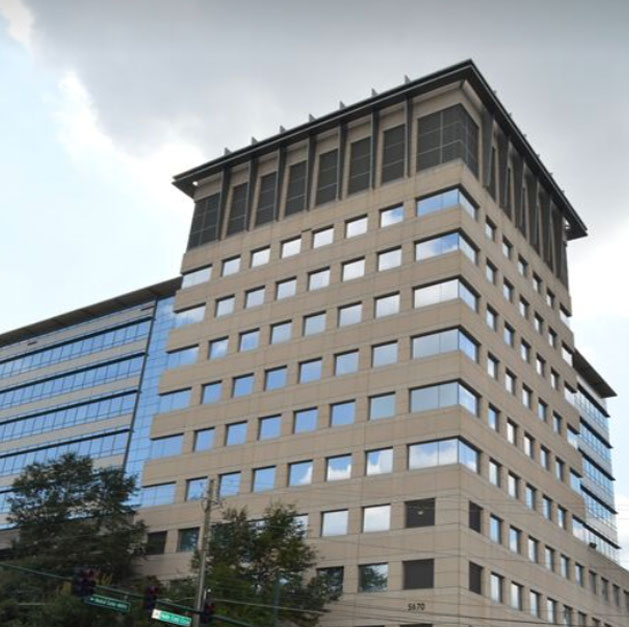2020 ENDOSCOPIC SURGERY GUIDE – FAQ’s – Recovery – Videos – Case Studies
Answer your questions and concerns about sinus surgery. Learn all the ways we can address breathing and infection issues in the nasal cavity through endoscopic surgical techniques. From start to finish we guide you through the process.
ABOUT OUR SURGICAL DIRECTOR: Dr. Sinha, is Board Certified in Otolaryngology-Head and Neck Surgery, the study of ear, nose and throat, as well as Facial Plastic, Facelift, Rhinoplasty and Plastic Surgery. With a professional career that spans over three decades, Dr. Sinha specializes in medical and surgical management of sinus problems.
What are Sinuses?
Sinuses are a connected system of hollow cavities inside a person’s skull that are situated around the eyes and nose and within the front of the face. These sinus cavities make the skull lighter and produce mucus that adds moisture to the nasal passages.
The mucus helps keep out pollutants, dirt, and infectious organisms. Normally, the sinuses are empty, except for this thin layer of mucus. Unfortunately, these sinuses can become infected and create sinus and breathing problems. Millions of people report having difficulty taking a deep breath or feeling as if they are constantly short of breath. Figuring out what’s behind a person’s breathing problems is the first step towards figuring out how to treat the issue.
What Causes Breathing Problems?
Breathing problems can be caused by many things, including having a cold or occasional bouts of acute sinusitis. However, some breathing problems are chronic or long term, which include asthma, chronic sinusitis, and allergies. These breathing problems can cause symptoms, such as nasal congestion, runny nose, itchy and/or watery eyes, chest congestions, cough, wheezing, and labored and/or shallowed breathing.
Additionally, when a patient falls asleep, if they can’t breathe through their nose, they mouth breathe which causes them to snore. While a minimal amount of snore sounds is considered normal, especially during times of illness, when a person snores severe enough they can tip over into sleep apnea, which can have a substantial impact on a person’s health.
What Tests Are Used to Diagnose Breathing Problems?
Dr. Sinha will perform a physical examination on you. He will ask you questions, including taking a patient history and family health history and perform different tests. For instance, lung function tests, are frequently used to assess lung function in people with asthma. In some cases, Dr. Sinha may take an X-ray to see the structures inside your chest, including your heart, lungs, and bones.
A chest X-ray is a good test to diagnosis pneumonia, or he may order a CT scan of your chest, which will look for any problems in your lungs. If you suffer with chronic sinusitis, Dr. Sinha may order a sinus CT scan. This scan will be used to evaluate your sinuses. Once the problem is diagnosed, Dr. Sinha may prescribe effective treatment to help resolve the breathing difficulty. One such treatment for sinus problems is Endoscopic Sinus Surgery.
What is Endoscopic Sinus Surgery?
Endoscopic sinus surgery is a surgical procedure used to remove blockages in the sinuses. These blockages can cause sinusitis, in which the sinus mucous membranes swell and become blocked, causing pain, drainage and impaired breathing. The goal of surgery is to carefully remove the thin, delicate bone and mucous membranes that block the drainage pathways of the sinuses.
Endoscopic sinus surgery is also performed to relieve symptoms and/or treat Deviated Septum or Turbinate Hypertrophy, and Nasal Polyps. The term “endoscopic” refers to the use of small fiberoptic telescopes that allows all the surgery to be performed through the nostrils, without the need for any skin incisions. Endoscopic sinus surgery is generally performed on an outpatient basis.
How is Endoscopic Sinus Surgery Performed?
Usually under general anesthesia, a surgeon will use an endoscope, a thin camera rod with a light at the end, to provide visualization and magnification of the sinus tissues. Specialized instruments can be used to safely and effectively remove causes of sinus blockage like natural blockages, nasal polyps and scar tissue. Specialized instruments are also used to straighten the septum and reduce the size of the turbinates if required. Endoscopic sinus surgery does not involve cutting through the skin, as it is performed entirely through the nostrils. Therefore, most people can go home the same day.
Why is Endoscopic Sinus Surgery Performed?
Endoscopic sinus surgery is used to treat Chronic Sinusitis, Deviated Septum or Turbinate Hypertrophy, and Nasal Polyps.
Chronic Sinusitis
If the sinus opening becomes blocked, normal mucus drainage may not occur, and this may lead to recurrent sinus infections and painful symptoms. Sinusitis can be acute, lasting for less than four weeks, or chronic, lasting longer than 12 weeks. Acute Sinusitis, also called acute rhinosinusitis, is a short-term inflammation of the sinus cavities.
The membranes that line your nose and surrounding sinuses can become inflamed due to viruses, bacteria, or fungi. This inflammation impedes your ability to drain mucus through your nose and sinuses. Acute sinusitis is common and, in general, affects 1 out of every 8 people annually. Unless a bacterial infection develops, most cases of acute sinus infections resolve within three weeks.
What is Chronic Sinusitis?
Infections that last longer than three weeks, despite medical treatment, is called chronic sinusitis.
Normally, healthy sinuses drain into the nose through the sinuses. When these passages are blocked, fluid can back up into the sinuses causing inflammation. If the passages are blocked for an extended amount of time, it may result in chronic sinusitis. Chronic sinusitis occurs when the spaces inside your nose and head (sinuses) are swollen and inflamed for three months or longer, despite treatment. Chronic sinusitis and acute sinusitis have similar signs and symptoms, but acute sinusitis is a temporary infection of the sinuses often associated with a cold. The signs and symptoms of chronic sinusitis last at least 12 weeks, but you may have several episodes of acute sinusitis before developing chronic sinusitis. Fever isn’t a common sign of chronic sinusitis, but you might have one with acute sinusitis.
What causes Chronic Sinusitis?
Chronic sinusitis interferes with the way mucus normally drains and makes your nose stuffy. Breathing through your nose may be difficult, and the area around your eyes might feel swollen or tender. Chronic sinusitis can be caused by: Blocked airways from asthma or allergies, infection, fungus, deviated nasal septum (the nose is shifted to the side, creating a blockage), polyps (growths), or a weakened immune system. People with allergies or asthma may be more vulnerable to chronic sinusitis. Treatment for chronic sinusitis depends on the underlying cause.
What are the symptoms of Chronic Sinusitis?
Symptoms of chronic sinusitis may include: Tenderness or pressure in the face, particularly around the nose, eyes, and forehead, Post nasal drip (mucus drips down the throat), Nasal discharge (thick yellow or green discharge from nose), Stuffy nose, Toothache, Headache, Cough, Tiredness, and/or Ear pain. Patients with recurring, long-term sinus infections often benefit from endoscopic sinus surgery. After reviewing your medical history and x-ray studies, Dr. Sinha can determine if you are a surgical candidate.
Deviated Septum or Turbinate Hypertrophy
Endoscopic Sinus Surgery can also treat a deviated septum or turbinate hypertrophy. The nasal septum is the dividing line of cartilage between your two nostrils, and it is rare to see a perfectly straight nasal septum. For those patients with a crooked nasal septum (“deviated septum”), this can be corrected by making a small hidden incision and involves dissolvable stitches that are hidden in the nostril area.
Turbinates are the small structures in your nose that cleanse and humidify air as it passes through your nostrils and into your lungs, and turbinate hypertrophy is due to an enlargement of the turbinates.
What are the symptoms of a deviated septum or turbinate hypertrophy?
The most common symptoms of septal deviations and turbinate hypertrophy are congested or blocked nasal breathing, breathing trouble at night and snoring, chronic nosebleeds and chronic sinus infections. When septal deviations do cause problems, they are largely due to airway obstruction. It simply feels as though you cannot breathe well through one or both sides of your nose.
This tends to bother people more at night. Nasal septal deviations can also cause sinus problems and may contribute to chronic infections. Diagnosing a deviated septum involves a thorough physical examination, nasal endoscopy and a CT scan. When the septum or turbinate bony structures are causing nasal obstruction or medications fail to improve symptoms, surgery is often required. This surgery may involve straightening the septum or turbinate reduction.
Nasal Polyps
Endoscopic Sinus Surgery can also treat nasal polyps. Nasal polyps are soft, painless, non-cancerous growth on the lining of your nose or sinuses. They hang down like teardrops or grapes and can result from chronic inflammation and are associated with asthma, recurring infections, allergies, or drug sensitivity. While small polyps may not cause symptoms, larger growths or groups of polyps may cause a runny nose, stuffiness, or post-nasal drip. Polyps may also lead to breathing problems, a lost sense of smell, and frequent infections.
What are the Symptoms of Nasal Polyps?
Polyps are most common in adults, and in some cases, surgery is needed to remove them. Common signs and symptoms of chronic sinusitis with nasal polyps include:
- A runny nose
- Persistent stuffiness
- Postnasal drip
- Decreased or absent sense of smell
- Loss of sense of taste
- Pain in your upper teeth
- A sense of pressure over your forehead and face
- Frequent nosebleeds
What Should I Expect Before Surgery?
Before your surgery, Dr. Sinha may prescribe preoperative medications to optimize the condition of your sinuses for surgery. The medications may include antibiotics and/or oral steroids. Please be sure to start any preoperative medications on the appropriate day and adhere closely to the prescription. Additionally, you should avoid taking the following medications for at least fourteen days prior to surgery: aspirin, ibuprofen (Motrin/Advil), naproxen (Aleve), other non-steroidal anti-inflammatories (NSAIDS), vitamin E (multivitamin is OK), gingko biloba, garlic (tablets), and ginseng.
These medications can thin the blood and create excessive bleeding. Tylenol is safe and may be taken anytime up to the day of surgery. St. John’s wort should also be avoided for 2 weeks prior to surgery because of possible interactions with anesthesia medications. Please discuss all medication you take with Dr. Sinha prior to your surgery.
If you smoke, it is critical that you stop smoking for at least three weeks prior to surgery, and at least four weeks after surgery. Smoking can contribute to scarring, poor healing, and failure of the operation. It is important to inform your primary care physician that you are planning to have sinus surgery. Your primary care physician can help to clear you medically for surgery. Most of the necessary pre-operative testing will be performed by Dr. Sinha, but occasionally we will request old records from your primary care physician. We will make every effort to keep your primary care physician informed regarding your medical status both before and after your surgery.
During Surgery: In most cases, you will receive general anesthesia for your surgery, which means you will be asleep for the entire procedure. After your surgery has been completed, you will spend about one hour in the recovery room, followed by an additional recovery period of 1-2 hours in the second stage recovery unit. Most patients feel well enough to go home the day of surgery. You will most likely go home without nasal packing.
After Surgery: You can expect mild bleeding for 1-2 days after surgery and a general sense of fatigue for 1-2 weeks after surgery. In general, pain can be successfully controlled with narcotic or non-narcotic medications. You will have a series of postoperative visits that are critical for a successful outcome.
Restrictions during postoperative recovery period
For the first week following surgery you should not blow your nose. In addition, you should not bend, strain, or lift more than 20 lbs. during the first week. Light walking and regular household activities are acceptable any time after surgery. You may resume exercise at 50% intensity after one week and at full intensity after two weeks. You should plan on taking one week off from work and ideally have a half-day planned for your first day back.
How much does Endoscopic Sinus Surgery Cost?
Costs can vary from depending on the physician performing your procedure and the procedure itself. It’s best to schedule a appointment to review all your surgical and non surgical options to deal with your sinus issues.
Will my Health Insurance Cover the cost of Endoscopic Sinus Surgery?
Most insurance companies and Medicare cover the cost of Endoscopic Sinus Surgery. To be certain of your sinus surgery insurance coverage, contact your insurance provider to find out your specific policy.
Risks of Surgery
As with any surgical procedure, endoscopic sinus surgery has associated risks. Although the chance of a complication occurring are very small, it is important that you understand the potential complications and ask Dr. Sinha about any concerns you may have.
- Bleeding: Most sinus surgery involves some degree of blood loss, which is generally well tolerated by the patient. However, on occasion, significant bleeding may require termination of the procedure. Although most patients do not require nasal packing, a few patients will require a small nasal pack or tissue spacer to be removed after one week. Blood transfusion is rarely necessary and is given only in an emergency.
- Recurrence of disease: Although endoscopic sinus surgery provides significant symptomatic benefits for most patients, surgery is not a cure for sinusitis. Therefore, you can expect to continue with your sinus medications even after successful sinus surgery, although in general your requirements for such medications should be lessened. In some instances, additional “touch-up” or revision surgery may be necessary to optimize your surgical outcome.
- Visual problems: Visual loss has been reported after sinus surgery due to injury to the eye or optic nerve. Fortunately, such a complication is extremely rare. Injury to the eye muscles may result in double vision. Persistent tearing of the eye is another possible complication. Tearing problems usually resolve on their own but occasionally require additional surgery.
- Other risks: Other uncommon risks of surgery include alteration of sense of smell or taste; persistence and/or worsening of sinus symptoms and facial pain; change in the resonance or quality of the voice; and swelling or bruising of the area around the eye.
If you have breathing problems, contact Sinus Institute Atlanta. Breathing problems are complex, which unfortunately affects many people, and it is important to work with an experienced and knowledgeable physician to create a plan to treat your breathing problem. At Atlanta Institute for ENT we want to help you! Contact Sinus Institute Of Atlanta to schedule an appointment to discuss your symptoms and determine what testing and treatment are appropriate for you.











